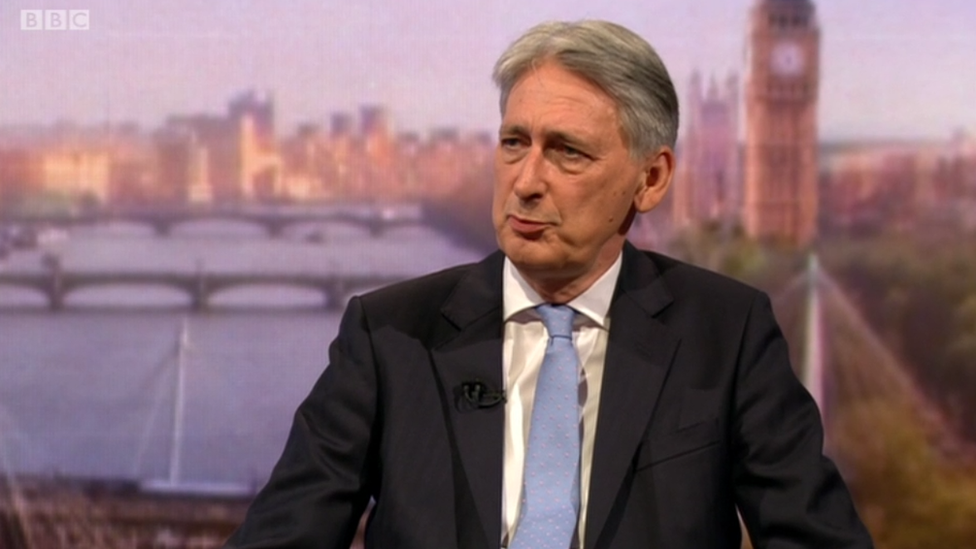Tory leadership contest: Voting closes
- Published
- comments
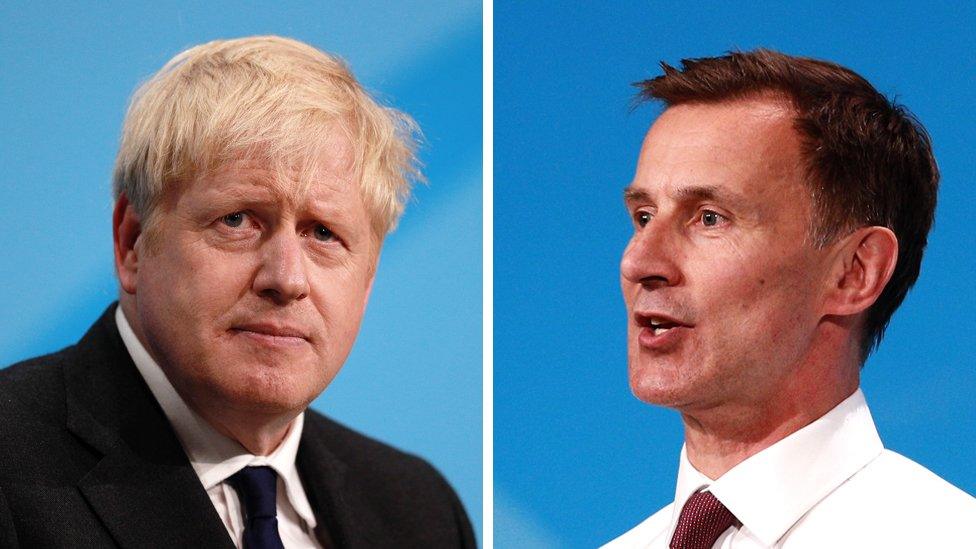
Voting has closed in the Conservative leadership contest, with the UK's next prime minister set to be announced on Tuesday.
The next occupant of Number 10 will be either Boris Johnson - regarded as the frontrunner - or Jeremy Hunt.
The winner and successor to Theresa May is due to take office on Wednesday.
Before the polls closed, Sir Alan Duncan quit as a Foreign Office minister in protest against a possible Boris Johnson victory.
Chancellor Philip Hammond told the BBC on Sunday he intends to resign as chancellor if Mr Johnson becomes prime minister.
Justice Secretary David Gauke also reiterated in the Sunday Times, external that he would also resign this week for the same reason.
BBC assistant political editor Norman Smith said the ministers could not stomach the prospect of a no-deal Brexit on 31 October, which they think Mr Johnson is increasingly likely to oversee.
Mr Johnson has said the UK must leave the EU by the deadline of 31 October "do or die, come what may". Mr Hunt has said he too is prepared to leave with no deal, but would accept a further delay, if required, to get a new withdrawal deal.
The EU has repeatedly said it will not re-open negotiations on the deal agreed with Mrs May.
'National self-belief'
Writing in the Daily Telegraph, external, Mr Johnson insisted a deal could be reached by 31 October if the country "rediscovers its sense of mission".
"We can come out of the EU on 31 October, and yes, we certainly have the technology to do so," he wrote. What we need now is the will and the spirit."
That message of optimism was echoed by one of his supporters, former Brexit Secretary Dominic Raab, who told BBC Radio 4's Today programme the leadership frontrunner had the national self belief" the country needed.
"We've risen to greater challenges before in the past. We should manage the risk but also grasp the opportunities which we don't get a chance to talk enough about," Mr Raab added.
Chancellor Philip Hammond announced on Sunday that he intends to resign
Meanwhile, two former Labour prime ministers have warned about what they see as the dangers of leaving the EU without a deal.
Writing in the Times, Tony Blair said a no-deal exit could range from being "very difficult" to "catastrophic".
"No-one knows with certainty the impact of no deal for the simple reason that no developed nation has ever left overnight its preferential trading arrangements in this manner," he wrote.
Mr Blair added that there was "no prospect" of a new deal with the EU that Mr Johnson would approve of, arguing that instead, another Brexit referendum was the solution.
Gordon Brown, meanwhile, is to claim in a speech in London that leaving without a deal would push the British economy "off a cliff".


This is the week where everything changes, and, perhaps, nothing changes at all.
A week where the old establishment becomes the new rebels; where the crowd-pleasing showman throwing rhetorical rocks at the leadership becomes, in all likelihood, the leader himself.
The differences in temperament and character between the outgoing prime minister and her likely successor, Boris Johnson, could hardly be more stark.
But while a change in personnel is coming, so many of the fundamentals remain the same.
Where Mrs May looked nervously over her shoulder at rebels like Brexiteer Jacob Rees Mogg, Mr Johnson may do the same at opponents of the no deal Brexit he's willing to contemplate - their capacity to be awkward is turbo charged because their party has a barely existent majority.
So there is one big question: Can Boris Johnson, if it is him, succeed where Theresa May failed? And if he can, what will success look like?

Last week, MPs approved measures aiming to stop the next prime minister suspending Parliament to force through a no-deal Brexit.
Mr Hunt has ruled this out as a way to ensure Brexit takes place before the end of October - but Mr Johnson has not done the same.
On Sunday, former Tory leader Iain Duncan Smith - who is managing Mr Johnson's campaign - said the issue was a "complete red herring".
He said the suspension - or prorogation - of Parliament was not "the real debate" because MPs had already fixed the 31 October exit date in law.
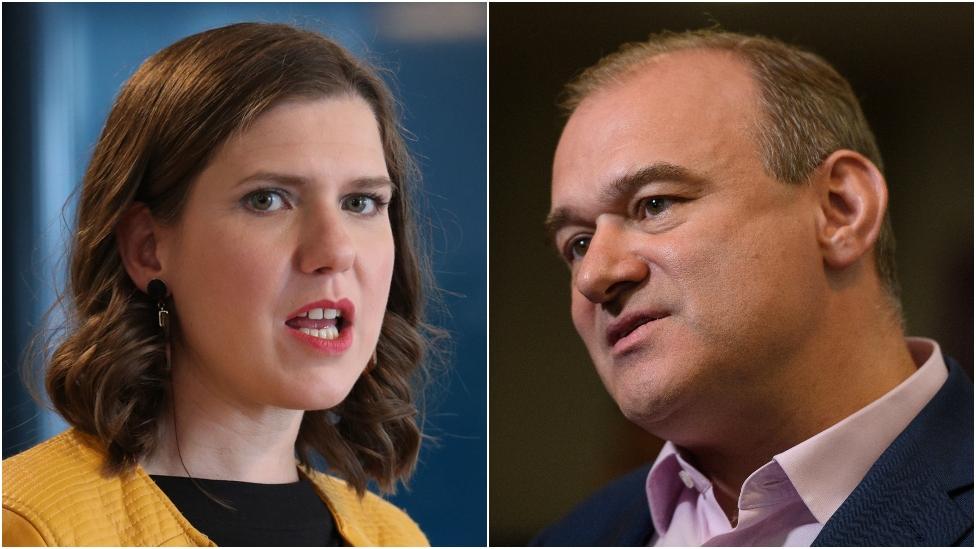
Either deputy leader Jo Swinson or former Energy Secretary Ed Davey will be announced as the Lib Dems next leader on Monday
Meanwhile, Jo Swinson has become the first female Liberal Democrat leader, after decisively beating Sir Ed Davey in a poll of party members.
The 39-year old, who succeeds Sir Vince Cable, said she was "over the moon" to have been elected and was "ready for the fight of our lives".
- Published18 July 2019
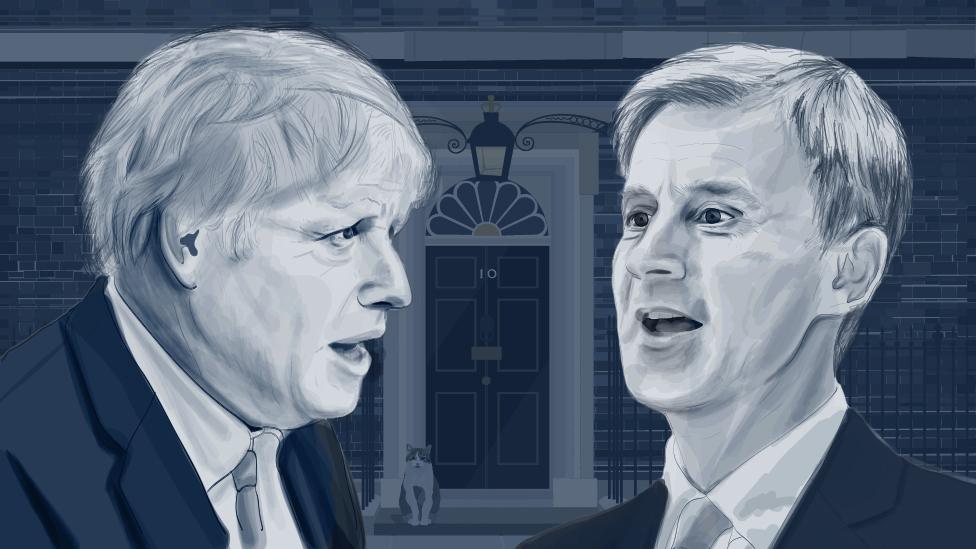
- Published16 July 2019
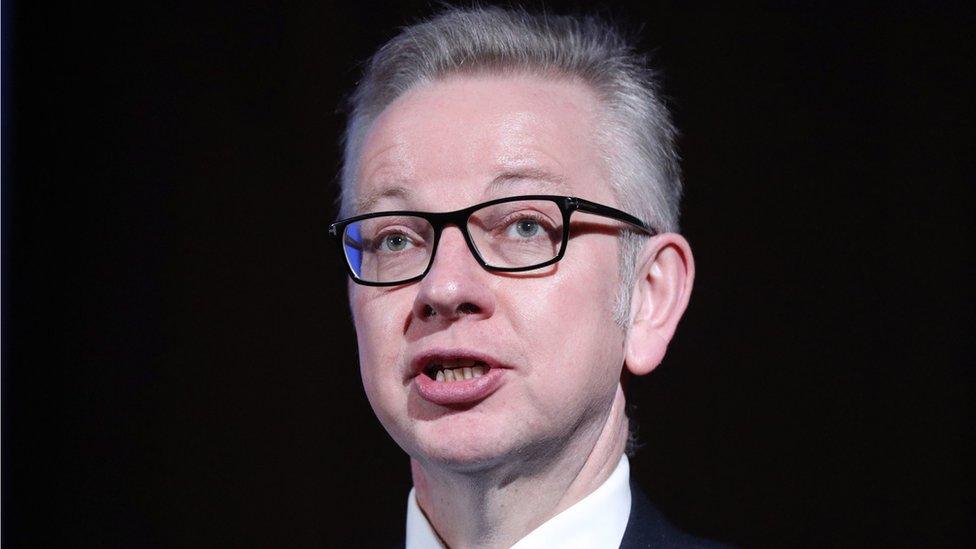
- Published21 July 2019
